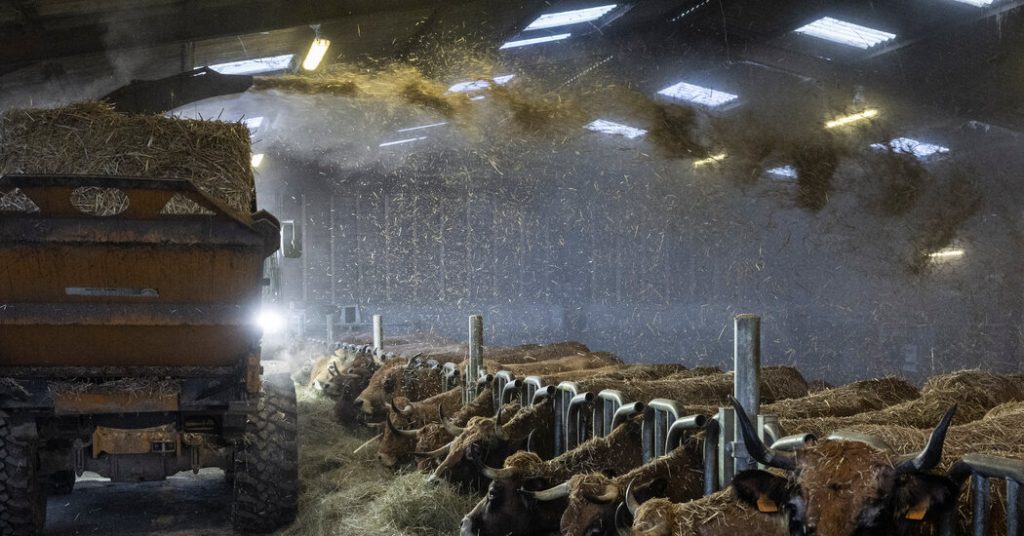Jean-Michel Sibelle, a farmer in France, takes pride in his chickens, the famous “poulet de Bresse,” which is recognized for its unique flavor and quality. However, despite his passion for farming, he is facing challenges that have led him to the decision to sell his farm. Like many farmers in Europe, he is struggling with rising costs, increased regulations, and a lack of successors. This has sparked protests and demonstrations across the continent, with farmers pushing back against environmental regulations that are impacting their livelihoods.
The discontent among farmers in Europe is not just about the challenges they face in their daily work, but it also has wider implications for politics and the economy. The rise of far-right parties across the continent has capitalized on this anger, framing it as an issue of urban elites versus rural communities. Environmental regulations, such as the E.U.’s “Green Deal” and “Farm to Fork Strategy,” are portrayed as attacks on traditional ways of life and the economy. Farmers feel abandoned by a government that they believe does not understand or support their needs.
The European agricultural policy, known as the Common Agricultural Policy (C.A.P.), has been a cornerstone of the European Union for decades. However, it is now facing criticism for favoring large farms and creating dependency among farmers. The policy has also led to increased competition from other countries with lower labor costs, further impacting European farmers. The discontent among farmers has forced governments to make concessions, including scrapping environmental regulations and protecting against unfair competition from other countries.
While some farmers are embracing new farming methods, such as organic farming, the road ahead is still tough. Young farmers like Méryl Cruz Mermy and Benoît Merlo are facing challenges in staying afloat in an increasingly competitive and regulated industry. They are committed environmentalists but struggle with the financial pressures of the organic food sector. Despite the difficulties, they remain optimistic about the future of farming and are determined to pass on their farm to the next generation.
Ultimately, the future of farming in Europe is at a crossroads. While traditional farming methods and practices are being challenged by environmental regulations and economic pressures, there are also opportunities for innovation and sustainability. Farmers like Jean-Michel Sibelle, who have dedicated their lives to raising legendary poultry, are facing the end of an era. As they navigate the changing landscape of agriculture in Europe, they are left with a sense of resignation and uncertainty, but also a deep sense of pride in their work and the legacy they leave behind.


